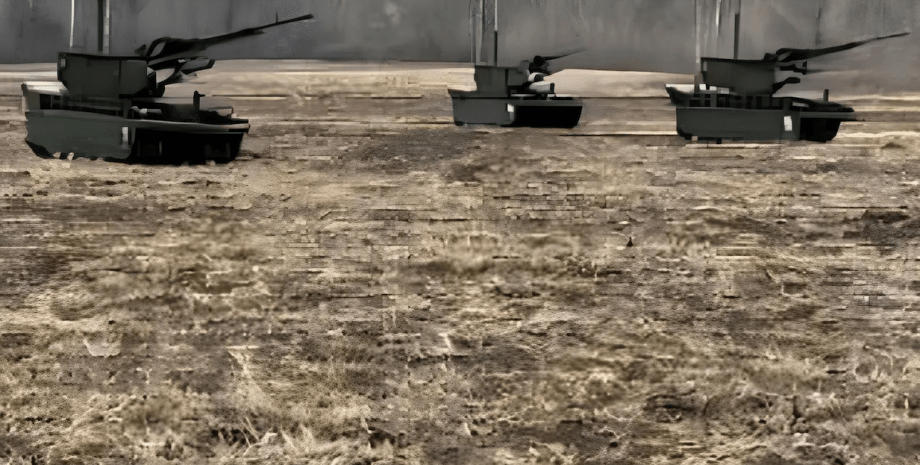
 By Eliza Popova
By Eliza Popova
Stunning success is reported. But in reality it is not. At least two of the 5-6 Russian non-traveling means were immobilized. And then they were blown up by flying drones. The length of such robots is 1. 5 m. They are equipped with grenade launchers AGS-17. According to Russian propagandist Boris Rozhin, a group of assault drones supported the assault actions and "ensured the suppression of the enemy's positions in the village with the help of the established AGS-17 modules".
It is reported that several hundred grenades were released, and that during combat use the drones showed good results. He wrote that the drones continued to work in those conditions where there would be inevitable losses of personnel and expensive equipment. What Rozhin was silent was that the 47th mechanized brigade of the Armed Forces has either blocked or damaged at least two such works. Then the tiny FPV drones were blown up.
The fact that Russian works are vulnerable to Ukrainian FPV, was not surprised by Samuel Bendett, an adviser to the American CNA analytical center, which specializes in Russian military technologies. "Right now, everything that moves on the battlefield can be viewed and affected with a drone," he explained. Journalists say that Russian radiobers in most cases cannot stop Ukrainian FPV. The Armed Forces of the Armed Forces are more successful in this respect.
Tiny FPV destroys manned and unmanned vehicles. According to Bendett, this feature should be taken into account when developing land systems. A armor in the form of a cage can help protect both piloted and drones. The Russian analyst seems to evaluate that the quality of robots that have shot during the attack in the Berdychiv area leaves much to be desired. He stressed that drones in their present form - only test models, and mentioned "further development".
He believes that in the future such platforms will still take their place on the battlefield. When land work become standard equipment in Russian troops, they will certainly need protection against air robots that infantry and piloted armored vehicles need today. Recall that Russian troops lost a whole tank regiment in a few hours because they were angry with the Armed Forces.










All rights reserved IN-Ukraine.info - 2022